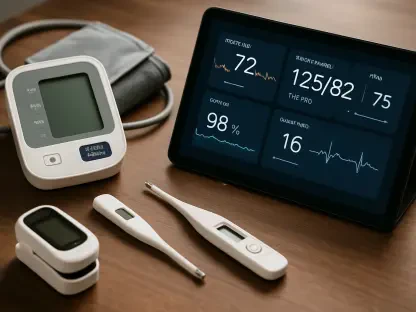The landscape of healthcare for Medicare recipients is undergoing a significant transformation, thanks to the advent of remote monitoring technologies. With the ability to manage health from the comfort of one’s home, these developments herald a new era of convenience and patient empowerment. The Centers for Medicare & Medicaid Services (CMS) are at the forefront of this change, ensuring that these advancements are integrated into Medicare in a way that balances medical effectiveness with fiscal responsibility.
Remote Monitoring in Medicare’s 2024 Physician Fee Schedule
Remote Physiological Monitoring (RPM)
The inclusion of Remote Physiological Monitoring (RPM) in the 2024 Medicare Physician Fee Schedule marks a pivotal moment for healthcare delivery. By facilitating the home transmission of vital health data, RPM empowers continuous care and showcases CMS’s dedication to embracing innovative healthcare solutions that meet modern-day needs.
Remote Therapeutic Monitoring (RTM)
The expansion of Medicare to cover Remote Therapeutic Monitoring (RTM) reflects CMS’s nuanced understanding of patient care, highlighting the importance of therapy compliance and pain level tracking. This move broadens the scope of remote patient care, allowing for dynamic treatment optimization.
Post-Pandemic Regulatory Adjustments
RPM and RTM Services Policies
As the COVID-19 Public Health Emergency subsides, CMS has clarified reimbursement for RPM and RTM services. These policy updates set specific eligibility criteria to ensure the integrity of remote monitoring, helping to maintain sustainable support for patients in need.
Supervisory Requirements for RTM
CMS has revised supervisory requirements for RTM, extending general supervision privileges to occupational and physical therapists, thereby enhancing the accessibility and scalability of remote therapeutic services.
Emphasizing Rural Health and Behavioral Integration
RHCs and FQHCs Policy Updates
CMS’s policy adjustments for Rural Health Clinics (RHCs) and Federally Qualified Health Centers (FQHCs) aim to improve their payment systems and facilitate the integration of remote monitoring services, emphasizing the mission to equalize healthcare for underserved areas.
Expansion in Care Management Services
In a significant move, CMS is shifting its focus to incorporate behavioral health into comprehensive care management, acknowledging the importance of mental health care in the overall well-being of Medicare beneficiaries.
The Future of Digital Therapies in Medicare
Assessing Digital Cognitive Behavioral Therapy (CBT)
As CMS examines the potential inclusion of digital therapies, such as cognitive-behavioral therapy apps within Medicare, it highlights the agency’s forward-thinking approach to patient care, aligning Medicare with the digital evolution of healthcare services.
Seeking Feedback from Healthcare Providers
Continual engagement with healthcare professionals and stakeholders is a testament to CMS’s collaborative and adaptive policymaking, reflecting a commitment to crafting policies that are informed by direct experience and expertise.
Conclusion: Continuously Evolving Care Delivery
The strides made by CMS in updating Medicare policies underscore the agency’s dedication to advancing a technological ecosystem within healthcare. These initiatives reflect a future-oriented mindset, driving a digital-forward approach that ensures Medicare beneficiaries receive the highest quality, patient-centered care possible.









